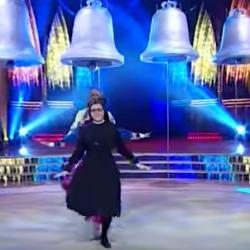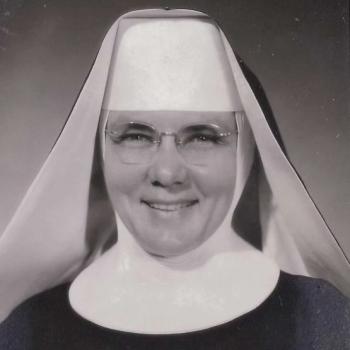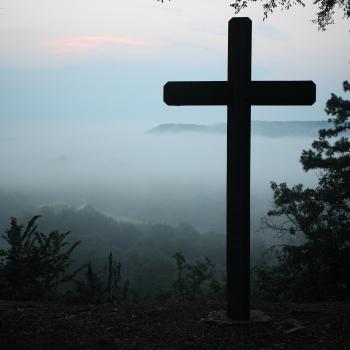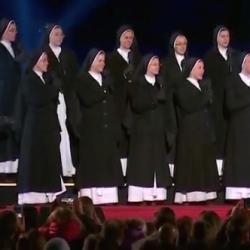I confess that I’m not a regular reader of Commonweal, but a reader sent this my way and it seems to me a worthwhile addition to the conversation: an essay by a sister explaining, in her view, what the CDF has gotten wrong in its probe into the LCWR:
Like many others, I am deeply distressed by the document produced by the Congregation for the Doctrine of the Faith(CDF) and the effect it is having on women religious around the country. And I must concur with the national board of the LCWR in its sense that accusations made against it are “unsubstantiated” and the “sanctions…disproportionate.”
A number of statements in the CDF document strike me as patently inaccurate, misleading, and unfair. I cannot attest to whether the LCWR featured or supported New Ways Ministry before the Vatican forced the resignation of Br. Robert Nugent and Sr. Jeannine Gramick from its leadership. I do know that when Sr. Jeannine had been counseled to be silent on issues pertaining to the church and homosexuals, she petitioned to be given a forum at one of the LCWR national assemblies—against the wishes not only of Rome but of her congregational leadership. After considerable discussion among the entire body of LCWR membership present, she was not given that platform. After that assembly, I did what one speaker had recommended we do individually: express to bishops we met our concern for compassionate care and outreach to gay and lesbian people on the part of the church. As I recall, no one argued in favor of marriage rights. I have not been privy to every meeting or every discussion or every draft of statements in the years since that assembly, but I bear an indelible memory of a painful and sometimes heated discussion that came to what seemed to me a very balanced and nuanced conclusion.
What’s more, many of us have signed vigorously prolife statements; participated in rosary rallies, forty-days-for-life observances, the annual marches in January; and have been scrupulously faithful to magisterial guidelines, including those set forth in John Paul II’s Evangelium vitae, in our health care facilities, in our teaching, and in decisions we have made as those bearing power of attorney for members facing extremely difficult end-of-life situations. I’m offended at being characterized by association as being insufficiently prolife.
What I have valued deeply in the LCWR is that its members have called attention to policies and practices that offend our Catholic life ethic or our Catholic social teaching in ways that have sometimes gone unnoticed. For example, the LCWR, along with the International Union of Superiors General, highlighted the problem of human trafficking long before others took notice. At LCWR meetings I learned what multinational corporations were doing to illiterate peasants and squatters, what was happening at detention centers in the aftermath of 9/11, and how immigration laws and crackdowns on undocumented people were affecting families. LCWR has served as a consciousness-raiser for those of us who are not on the mailing list of every justice group and aren’t among sisters who have participated in organized protests. Because of LCWR, my congregational leadership signed on to the Earth Charter and a number of other causes that otherwise would not have crossed our minds.
The liturgical controversy in the CDF document seems to be twofold. One issue is the content of public prayer and the celebration of Eucharistic liturgies. I’ve probably attended more regional than national gatherings, but I am one of those liturgically sensitive people. The opening and closing prayers at LCWR meetings have always been devotional, reverent, and creative. The Masses always seemed well within rubrical guidelines. There were locations for smaller daily liturgies as well as the large whole-convention liturgy. These daily liturgies were sometimes held at hotels, sometimes at nearby parishes, and were celebrated by priests of the dioceses where we met, or priests from the men’s group for major superiors.
The other liturgical issue—and one about which considerable ado is made in the CDF document—is the question of the ordination of women. References to actions taken and statements made harking back to 1977-79 highlight this discussion. When Sr. Teresa Kane, RSM, stood up in the basilica in Washington, D.C., and appealed to Pope John Paul II for the full equality of women in roles of ministry in the church, I thought her action was imprudent and ill-advised. Years later, she received a standing ovation at an LCWR meeting, and I joined the applause–not for what she said to the pope, but because I’d bumped into her several times in a small chapel in Pittsburgh and saw her faithfulness to prayer.
There’s much more. Read it all.











